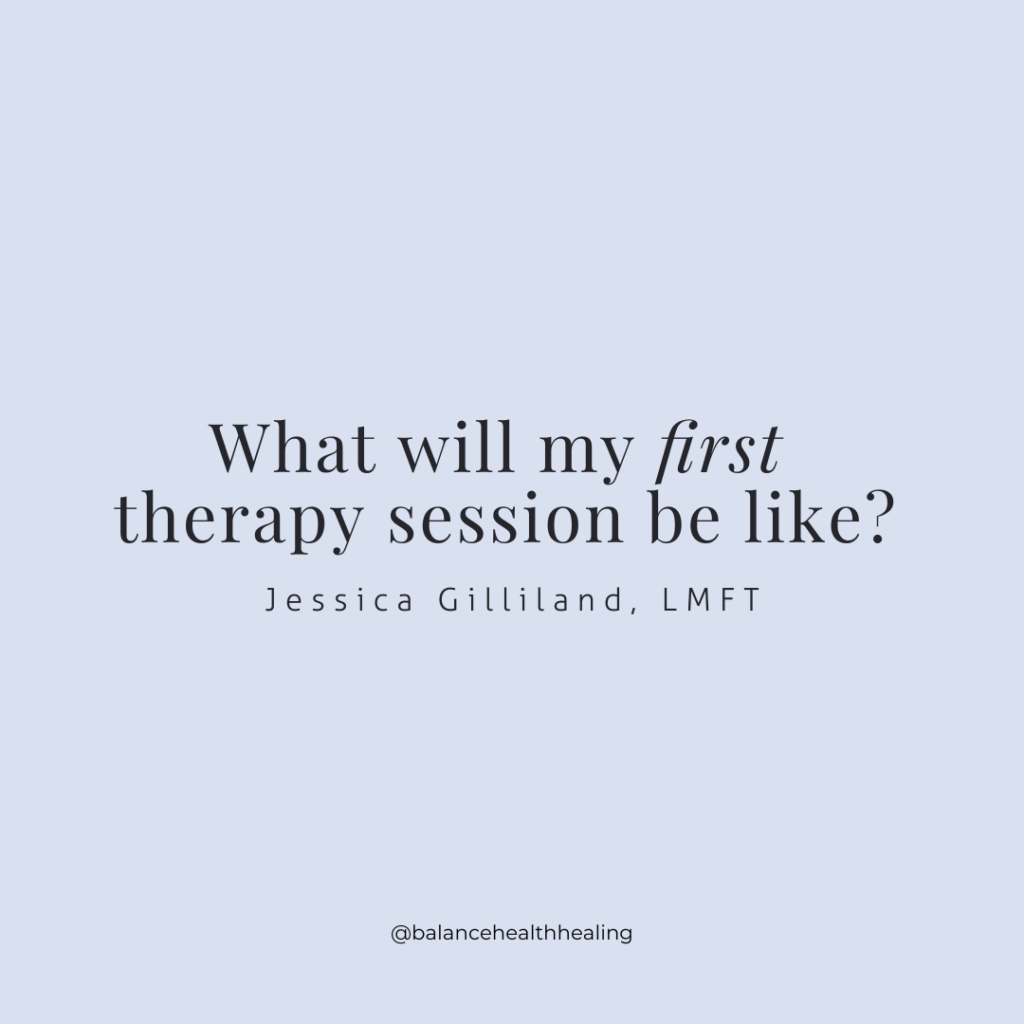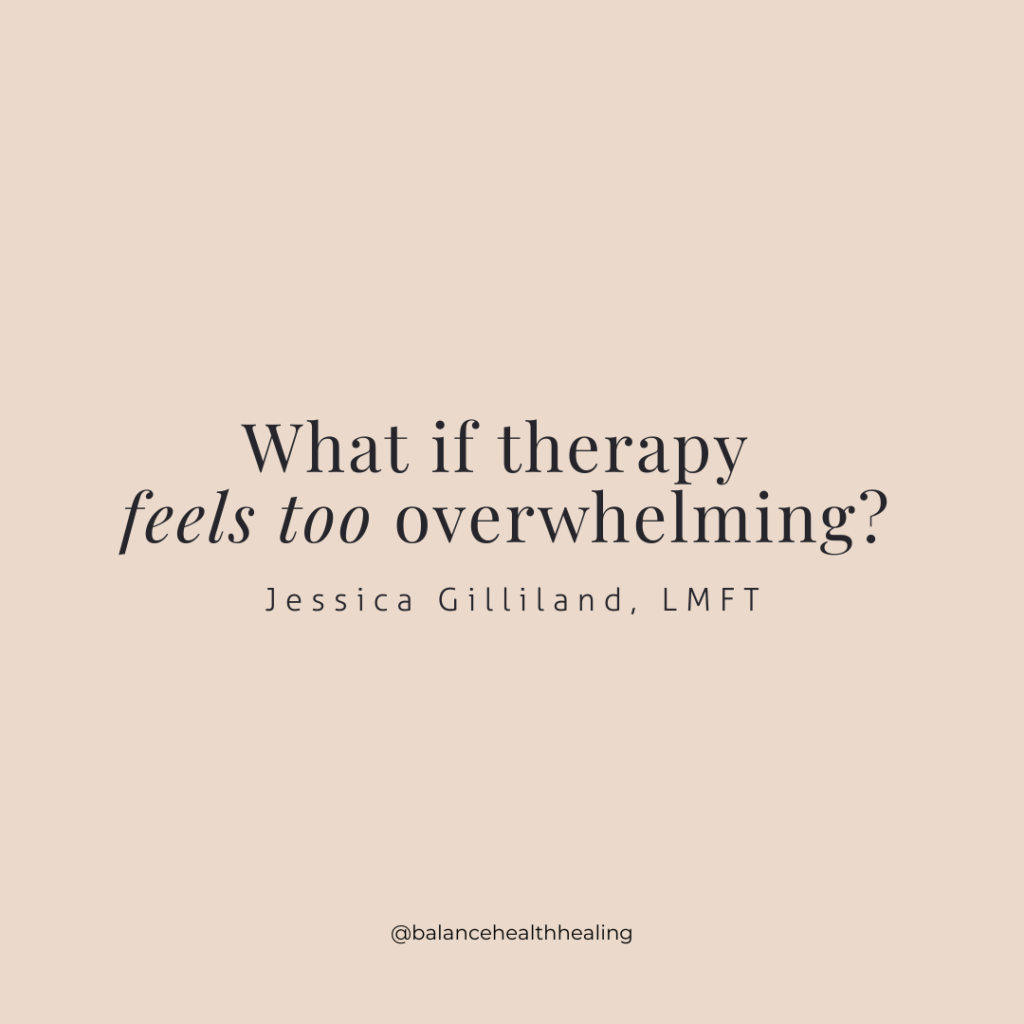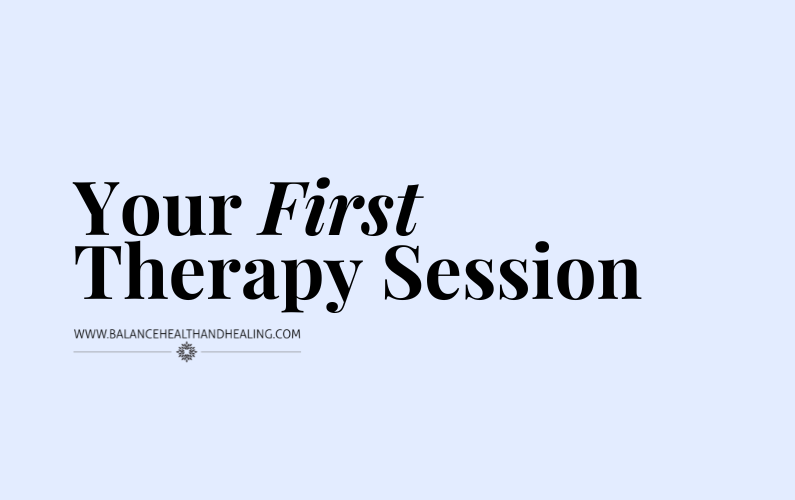So, you’re feeling like you might be ready to try working with a therapist. You’re not sure how it will go or what to expect. You’re wondering if talking to someone about your struggles will actually be helpful. What happens if you don’t like your therapist? Or what if talking about your struggles starts to feel overwhelming?
 If you’re having any of these thoughts as you consider starting therapy, I want to reassure you that you’re definitely not alone! It makes sense that coming in for your first therapy session can feel a bit intimidating. As a therapist, I’d say that most people feel some nervousness about coming into therapy for the first time. In this blog post, I’ll share my answers to a few of the questions I often hear from people about what to expect from a first therapy session. If you’re thinking about starting therapy, I hope you’ll find something helpful here!
If you’re having any of these thoughts as you consider starting therapy, I want to reassure you that you’re definitely not alone! It makes sense that coming in for your first therapy session can feel a bit intimidating. As a therapist, I’d say that most people feel some nervousness about coming into therapy for the first time. In this blog post, I’ll share my answers to a few of the questions I often hear from people about what to expect from a first therapy session. If you’re thinking about starting therapy, I hope you’ll find something helpful here!
What will my first therapy session be like?
Many therapists will have you fill out a simple questionnaire before your appointment, so they have a bit of information about why you’re wanting to come to therapy before you meet with them. When you first sit down together, your therapist might talk about privacy and confidentiality, and might explain some of the office policies. They might ask you about what made you decide to set an appointment, and what circumstances in your life are relevant to what you want to talk about in therapy. Your therapist might also work with you to set some specific goals for what you hope to get out of therapy. Your first session is also a chance for you to ask your therapist any questions you have.
What should I do to prepare for my first session?
Having some notes on what you’re needing from therapy can be helpful. Same goes for any questions or concerns you’d like to bring up with your therapist. There’s really nothing “required” for the first session except for the paperwork the therapist’s office sends you before your appointment (consent and privacy information, your payment agreement, contact information, etc.,). Having your paperwork filled out before your appointment will help you have all the session time available for talking with your therapist. Planning ahead to get to your therapist’s office a few minutes early can also help you feel less rushed and stressed.
What do I do if I don’t like my therapist?
I can’t speak for all therapists, but I like to let my clients know that it’s important to me that they find a therapist who feels like a good fit for their needs. If someone legitimately feels I’m not a good fit for them, I fully want them to let me know so I can either make adjustments to meet their needs better or support them in finding a therapist who feels like a better fit. You always have permission to do what feels right for you, including bringing up concerns with your therapist, or finding a therapist who feels like a better fit.
What if therapy feels too overwhelming?
Therapy is not always easy. In fact, most of the time, it can be a challenging experience. I know this firsthand as a therapist and someone with lots of experience going to therapy myself! Talking with a stranger about the most difficult parts of your life can be hard. Ideally, your therapist will help you go at a pace that is challenging, but not completely overwhelming. If you’re feeling overwhelmed, you can talk with your therapist about what you’re experiencing.
Starting therapy can take a lot of courage! I know I am biased, but I am a firm believer that therapy can be an incredibly helpful experience. You deserve to find the support you need, and I hope this blog post is helpful to you!

